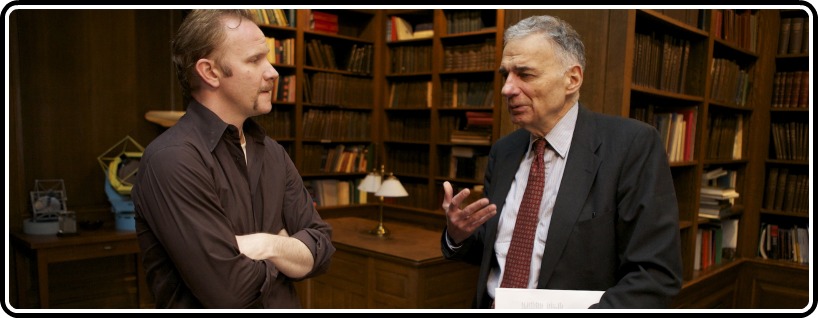Say what you will about documentary giant Morgan Spurlock, but the guy knows how to make a compelling documentary.
After making a massive splash on the documentary scene with his beloved fast food take down, Super Size Me, Spurlock has gone on to tap various ideas with his TV series 30 Days, the war on terror with Where In The World is Osama Bin Laden, and even the economy in a brief spot on Freakonomics, it’s time to take on a different beast: product placement.
That’s where The Greatest Movie Ever Sold comes in, and while it may have its flaws, it might be right up there as one of the best films from one of the biggest names in this genre.
Meta on a whole different level, Greatest Movie follows Morgan Spurlock as he attempts to find funding for, you guessed it, The Greatest Movie Ever Made. Through this funding, he’ll fund the film, which is about him trying to get funding. You still with me? Because if you are, this is one film you absolutely can not miss.
Spurlock himself has not changed one bit, for better and for worse.
As a film, Greatest Movie says very little, if anything at all, that is even the slightest bit new. Basically Spurlock’s treatise against the rise of product placement within film and media as a whole (one of the best aspects features him briefly touching on ‘clutter’ mentioning news channels) the film spends most of its time showing that executives simply don’t care about art, but instead care about pushing their brand. However, it’s how Spurlock goes about doing it that makes this such a wonderful film.
Featuring interviews with people ranging from Ralph Nader to Brett Ratner, each and every one of them truly adds a level of intrigue and depth to this otherwise repetitive documentary. Everyone speaks bluntly, almost to a fault image wise (Brett Ratner, I’m looking at you), and it’s really engaging, pairing well with the hyper-meta take on the narrative. Spurlock himself is also really engaging. The constant showman, Spurlock oozes this sense of charisma that sets him apart from names like Michael Moore and Charles Ferguson. Not as bombastic nor as the former or as stately as the latter, Spurlock allows himself to be the subject of the documentary, which at this point in his career, given his name recognition, gives his films a really interesting tone and ultimately an interesting outcome. Not anything new, but the film is not short of laughs, and the occasional statistic, although the former seems far more important to this film, for good and bad.
Visually, the film is also quite top notch. As with most modern documentaries, the film looks really wonderful, and uses editing and editing effects so well, that it both adds to the narrative and enjoyment of the film as a whole. It’s well shot, well framed, and eye grabbing from frame one, that while Spurlock may be short on intriguing facts, he’s not short on his skill for getting people to enjoy his films. Toss in this really fresh and inventive way to frame and set up his films, and Greatest Movie is a really enjoyable film.
That said, for those looking for a Ferguson style takedown of the business world and its effects on art, don’t get your hopes up. The film is very cursory in its information, giving the viewer very little in the way of informative statistics or details, becoming much more akin to a film narrative non-fiction film, with the occasional statistic thrown in. It is a well written piece of documentary filmmaking, but has little to add to the rather interesting conversation of product placement, and the inherent corruption of art when outsiders are the ones calling the shots.
Overall, The Greatest Movie Ever Sold may not be adding much to the conversation, but it’s at least trying to keep it alive. The best compliment that can be paid to a film like this is that while we all know it’s happening, it’s not letting the egregious nature of what production placement does to art die. It gives the conversation a new way to be discussed, that is both entertaining, and ultimately a conversation starter. Superficial in nearly every sense of the word, it’s also one of the most entertaining and engaging pieces of documentary filmmaking in quite some time. It may lack the depth of an Inside Job, or the emotional heft of something like SXSW and Sundance selection How To Die In Oregon, but it’s a film that will spark many a conversation, both about the medium and the message.



